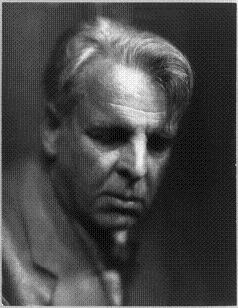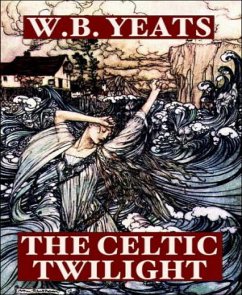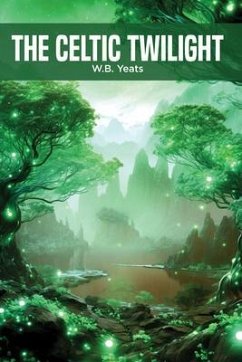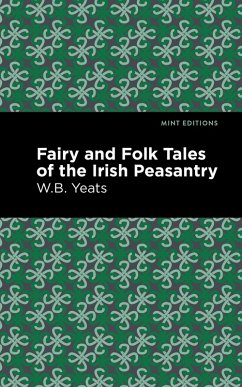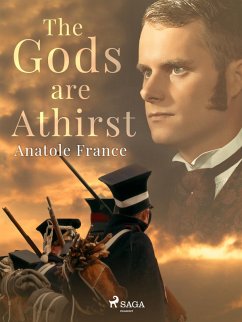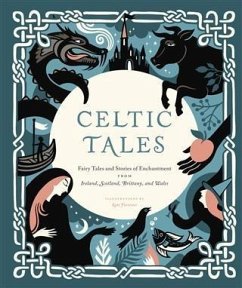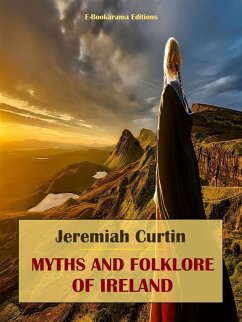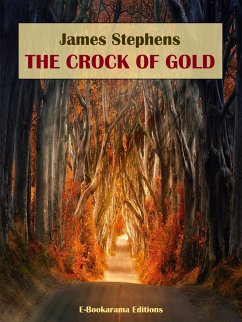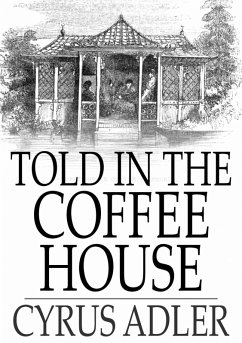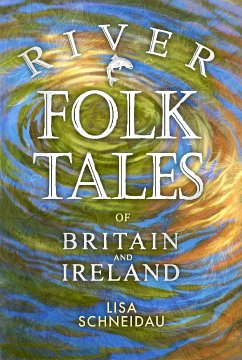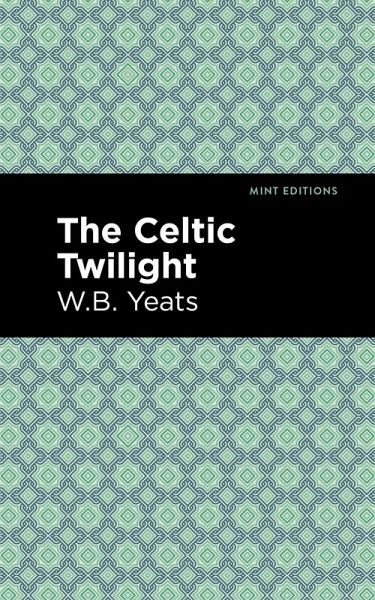
The Celtic Twilight (eBook, ePUB)
Versandkostenfrei!
Sofort per Download lieferbar
3,99 €
inkl. MwSt.
Weitere Ausgaben:

PAYBACK Punkte
2 °P sammeln!
The Celtic Twilight (1893) is a collection of stories written and edited by W.B. Yeats. Compiled at the height of the Celtic Twilight, a movement to revive the myths and traditions of Ancient Ireland, The Celtic Twilight captures a wide range of stories, songs, poems, and firsthand accounts from artists and storytellers dedicated to the preservation of Irish culture.In "Belief and Unbelief," a story is shared about a village at the foot of Ben Bulben. One day, a young girl disappears while walking through a local field. Fearful that the faeries have gotten her, the townspeople conduct a search...
The Celtic Twilight (1893) is a collection of stories written and edited by W.B. Yeats. Compiled at the height of the Celtic Twilight, a movement to revive the myths and traditions of Ancient Ireland, The Celtic Twilight captures a wide range of stories, songs, poems, and firsthand accounts from artists and storytellers dedicated to the preservation of Irish culture.
In "Belief and Unbelief," a story is shared about a village at the foot of Ben Bulben. One day, a young girl disappears while walking through a local field. Fearful that the faeries have gotten her, the townspeople conduct a search of the village, checking every home while burning ragweed and reciting spells to ward off the mischievous spirits. "Mortal Help" discusses the interdependence of humans and faeries, who require the presence of the living in order to play games in the physical world. As evidence, an old ditch digger tells a story from his youth, when he witnessed a group of faeries playing the game of hurling not far from the field where he was working. In "A Knight of the Sheep," an old farmer faces off with the local tax collector, and both struggle to maintain respect for one another while trading shrewdly concealed insults. "The Devil" discusses several demonic sightings among Irish peasants, who claim to have met Lucifer by the side of the road by day and under the bed at night. The Celtic Twilight captures the collision of ancient and modern Ireland, preserving its legends while ensuring their mystery remains.
This edition of W.B. Yeats's The Celtic Twilight is a classic of Irish literature reimagined for modern readers.
Since our inception in 2020, Mint Editions has kept sustainability and innovation at the forefront of our mission. Each and every Mint Edition title gets a fresh, professionally typeset manuscript and a dazzling new cover, all while maintaining the integrity of the original book.
With thousands of titles in our collection, we aim to spotlight diverse public domain works to help them find modern audiences. Mint Editions celebrates a breadth of literary works, curated from both canonical and overlooked classics from writers around the globe.
In "Belief and Unbelief," a story is shared about a village at the foot of Ben Bulben. One day, a young girl disappears while walking through a local field. Fearful that the faeries have gotten her, the townspeople conduct a search of the village, checking every home while burning ragweed and reciting spells to ward off the mischievous spirits. "Mortal Help" discusses the interdependence of humans and faeries, who require the presence of the living in order to play games in the physical world. As evidence, an old ditch digger tells a story from his youth, when he witnessed a group of faeries playing the game of hurling not far from the field where he was working. In "A Knight of the Sheep," an old farmer faces off with the local tax collector, and both struggle to maintain respect for one another while trading shrewdly concealed insults. "The Devil" discusses several demonic sightings among Irish peasants, who claim to have met Lucifer by the side of the road by day and under the bed at night. The Celtic Twilight captures the collision of ancient and modern Ireland, preserving its legends while ensuring their mystery remains.
This edition of W.B. Yeats's The Celtic Twilight is a classic of Irish literature reimagined for modern readers.
Since our inception in 2020, Mint Editions has kept sustainability and innovation at the forefront of our mission. Each and every Mint Edition title gets a fresh, professionally typeset manuscript and a dazzling new cover, all while maintaining the integrity of the original book.
With thousands of titles in our collection, we aim to spotlight diverse public domain works to help them find modern audiences. Mint Editions celebrates a breadth of literary works, curated from both canonical and overlooked classics from writers around the globe.
Dieser Download kann aus rechtlichen Gründen nur mit Rechnungsadresse in A, D ausgeliefert werden.




